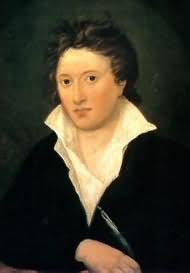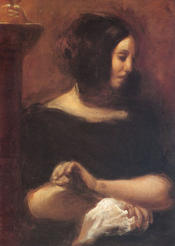 Happy birthday to Percy Bysshe Shelley, who was born on this day in 1792.
Happy birthday to Percy Bysshe Shelley, who was born on this day in 1792.
Music, when soft voices die,
Vibrates in the memory;
Odours, when sweet violets sicken,
Live within the sense they quicken.
Rose leaves, when the rose is dead,
Are heap’d for the beloved’s bed;
And so thy thoughts, when thou art gone,
Love itself shall slumber on.


